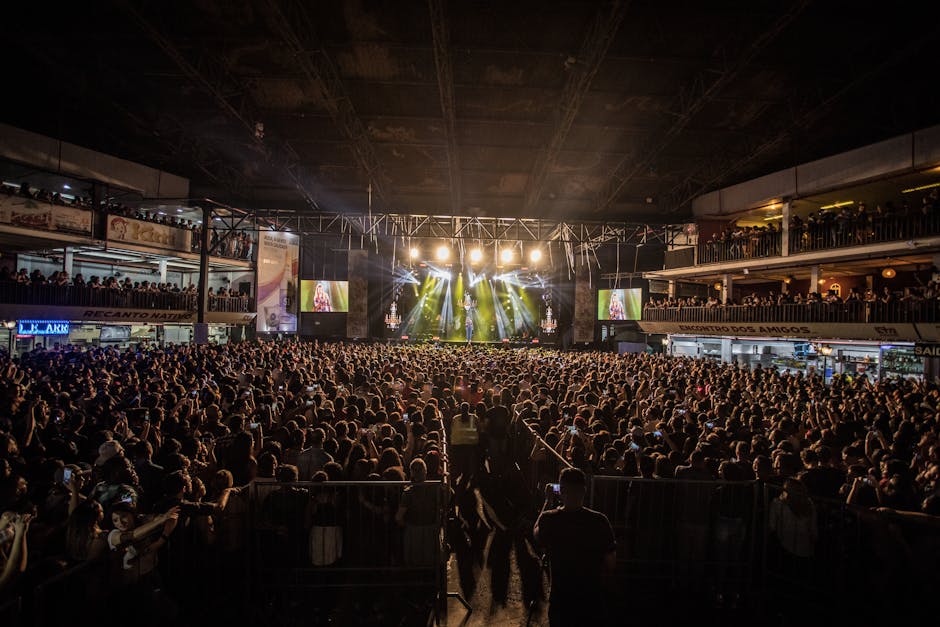Top Social Media Analytics Tools Every Musician Should Know About

Social media analytics have become invaluable for musicians aiming to navigate their careers effectively. Whether you're an independent artist or signed to a label, understanding how your music is received and how your audience interacts with your content can make all the difference. By utilizing social media analytics tools, musicians can gain insights into listener demographics, engagement metrics, and the overall impact of their marketing efforts.
1. Hootsuite
Hootsuite is one of the most popular social media management tools available. It allows users to schedule posts across multiple platforms and provides detailed analytics on those posts. Musicians can track engagement, follower growth, and even the performance of specific campaigns.
The platform offers customizable reports, which are particularly useful for visualizing data trends over time. Additionally, Hootsuite integrates with various third-party apps, making it easier to manage all aspects of your online presence from one dashboard.
One standout feature is the ability to monitor social media mentions in real-time. This helps musicians stay engaged with their fans and address any issues or questions promptly.
2. Sprout Social
Sprout Social is another comprehensive tool that offers robust analytics capabilities. It provides insights into audience demographics, engagement metrics, and the performance of individual posts. Musicians can use this data to tailor their content strategy to better meet the needs of their audience.
The platform also offers social listening features, allowing artists to monitor conversations about their music across different social media channels. This can be invaluable for identifying trends and understanding what fans are saying about your work.
Sprout Social's reporting tools are highly customizable, enabling users to create reports that focus on the metrics most important to them. This makes it easier for musicians to track their progress and adjust their strategies as needed.
3. Google Analytics
While primarily known for website analytics, Google Analytics also offers valuable insights into social media performance. Musicians can track traffic from social media platforms to their websites, helping them understand which channels are driving the most engagement.
The platform provides detailed reports on user behavior, including page views, session duration, and bounce rates. This information can be used to optimize both website content and social media strategies.
Google Analytics also integrates with various social media platforms, allowing users to see how their social media efforts are contributing to overall website performance.
4. Brandwatch
Brandwatch is a powerful tool for social media monitoring and analytics. It uses advanced algorithms to analyze conversations across various platforms, providing musicians with a deep understanding of how their music is being received.
The platform offers sentiment analysis, which can help artists gauge the emotional response to their work. This feature is particularly useful for identifying areas where improvements can be made or where additional promotion might be needed.
Brandwatch also provides competitive analysis tools, allowing musicians to see how they stack up against other artists in their genre. This can be invaluable for identifying opportunities and staying ahead of industry trends.
5. Chartmetric
Chartmetric specializes in music data analytics, making it a perfect fit for musicians looking to gain insights into their performance across various platforms. The tool tracks data from streaming services like Spotify and Apple Music, as well as social media platforms such as Instagram and Twitter.
One of Chartmetric's standout features is its playlist tracker, which shows where an artist's songs are being added on various playlists. This can provide valuable insights into how well a release is performing and where additional promotion might be needed.
The platform also offers detailed reports on listener demographics and engagement metrics, helping musicians better understand their audience and tailor their marketing efforts accordingly.
Table: Comparison of Top Social Media Analytics Tools
| Tool | Key Features | Best For |
|---|---|---|
| Hootsuite | Post scheduling, real-time monitoring, customizable reports | General use across multiple platforms |
| Sprout Social | Audience demographics, social listening, customizable reports | Deep audience insights and engagement tracking |
| Google Analytics | Website traffic analysis from social media, user behavior reports | Tracking website performance linked to social efforts |
| Brandwatch | Sentiment analysis, competitive analysis | In-depth monitoring of brand perception |
| Chartmetric | Streaming data tracking, playlist monitoring | Music-specific performance metrics |
6. Buffer
Buffer is another popular tool that helps musicians manage their social media presence more effectively. It allows users to schedule posts in advance and provides detailed analytics on post performance. Musicians can track engagement rates and see which types of content resonate most with their audience.
- User-friendly interface that simplifies post scheduling across multiple platforms.
- An easy-to-understand analytics dashboard that highlights key performance metrics.
- The ability to collaborate with team members by assigning roles and permissions within the platform.
7. Socialbakers
Socialbakers offers a comprehensive suite of tools designed to help musicians understand their audience better and optimize their content strategy. The platform provides detailed insights into audience demographics, engagement metrics, and content performance across various social media channels.
A unique feature of Socialbakers is its predictive analytics capabilities. These tools use historical data to forecast future trends in audience behavior and engagement rates. This can help musicians plan more effective marketing campaigns and release schedules.
The platform also offers competitive benchmarking tools, allowing users to compare their performance against other artists in their genre or industry. This can provide valuable insights into what works (and what doesn't) within a specific musical niche.
Selecting the right social media analytics tool depends on individual needs and goals as a musician. These tools collectively empower artists by offering clear pathways toward achieving greater success through data-driven decisions.
